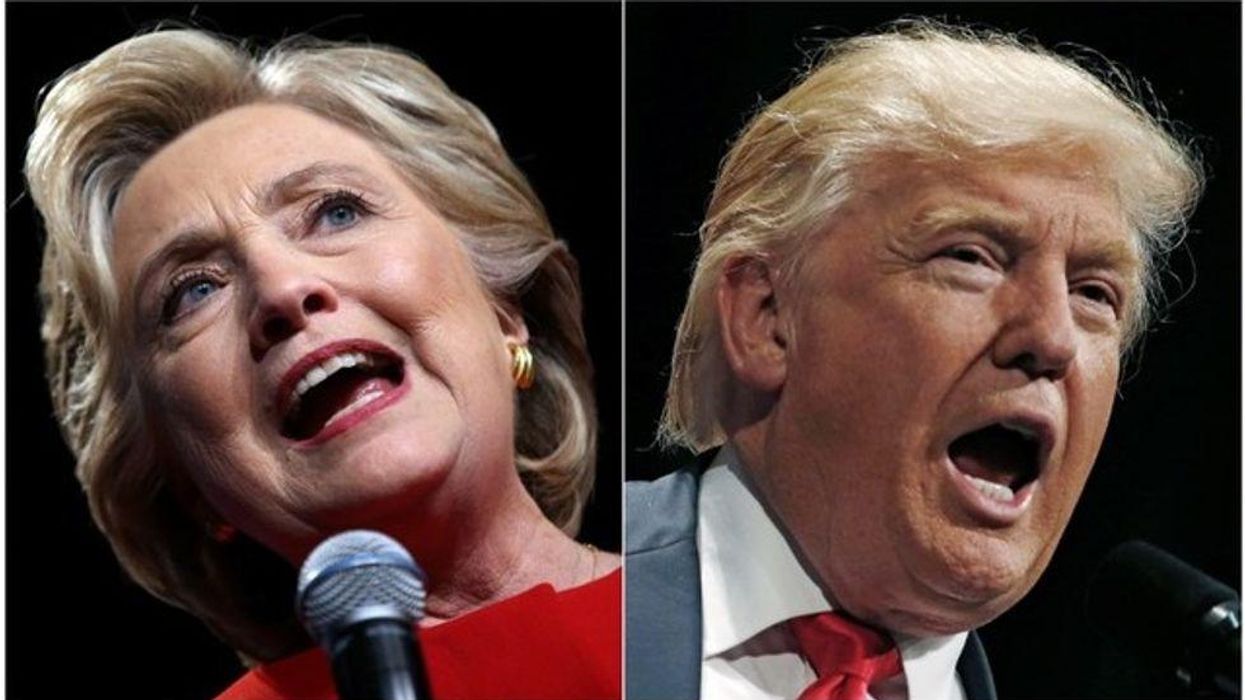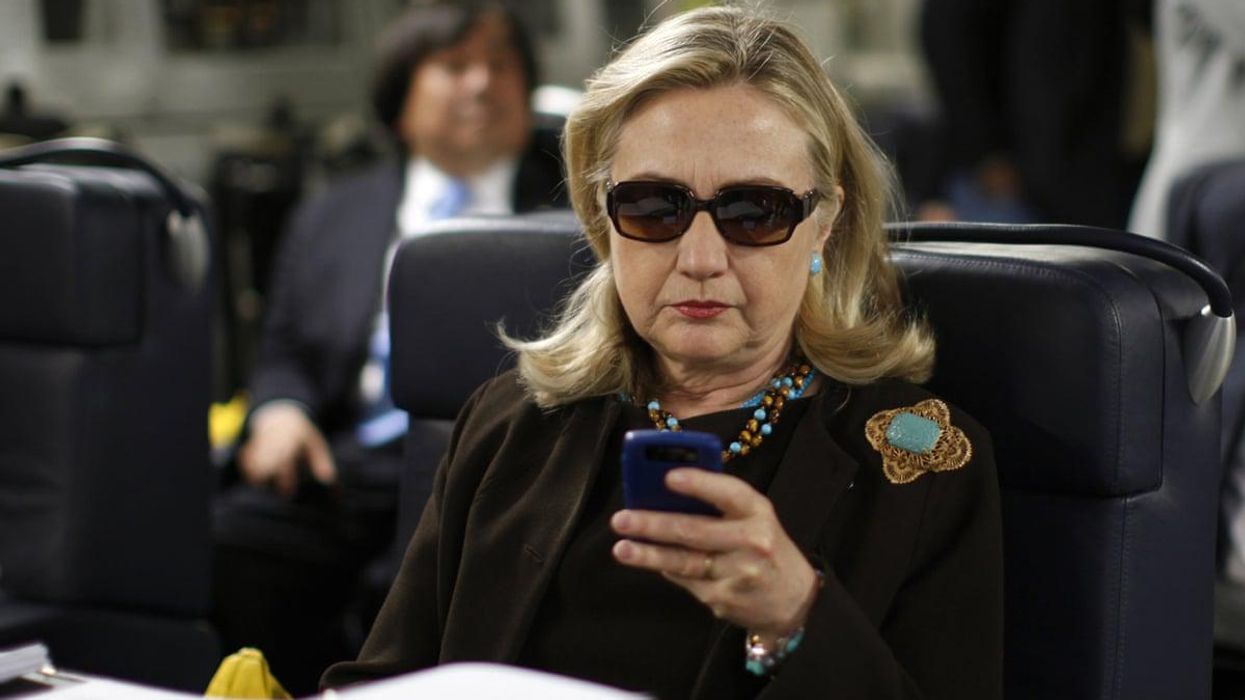Why The Trump War Plans Leak Is So Much Worse Than What Hillary Did
Even in a political environment marked by daily scandal and outrage, the revelation of a reckless and stupid security breach by Trump’s top cabinet members exploded yesterday. The potentially catastrophic leak of a top-secret military operation showed why President Trump’s cabinet choices were so dangerous – as many seasoned experts warned when he named them. Only by sheer luck was a disaster avoided.
It was a simple but stunning story: The Atlantic magazine’s editor-in-chief Jeffrey Goldberg, as reported by him and his staff, had been included by National Security Adviser Mike Waltz in a supposedly secret mid-March group text chat -- along with Vice President J.D. Vance, Defense Secretary Pete Hegseth, Secretary of State Marco Rubio, Director of National Intelligence Tulsi Gabbard, and more than a dozen other high-ranking officials. A Pentagon spokesman confirmed that the chat, convened on the encrypted app Signal, was authentic.
The chat messages conveyed highly sensitive military and diplomatic information, including “precise information about weapons packages, targets, and timing” that occurred two hours after he received a message on March 15.
Hegseth’s feeble attempt to deny that any “war plans” had been disclosed can only be added to the long roster of lies from him and other administration officials. A former Fox News personality and the target of numerous warnings against his arrogance, drunkenness, and inexperience before his confirmation, the defense secretary ironically assured the group chat that “We are currently clean on OPSEC" -- the military acronym for operational security.
“Under the previous administration, we looked like fools,” Hegseth recently boasted. “Not anymore.” Hegseth, Waltz, and the rest of the participants in those fateful discussions should soon become subjects of a national security investigation, during which they will presumably be wired up to polygraph machines, just as Hegseth has sternly prescribed for all suspected Pentagon leakers.
As soon as she read the news, former Secretary of State Hillary Clinton took to social media. “You’ve got to be kidding me,” quipped the irrepressible Democrat, daring her critics to bring up the old matter of “her emails” and the alleged scandal that probably cost her the presidency in 2016.
Despite Republican bleats of indignation, and angry posts urging her to “sit down” or worse, it is instructive to contrast what Hegseth and company did with Clinton’s own exhaustively investigated actions.
As reported in this space three years ago – and confirmed in a subsequent investigation by Washington Post reporter and fact-checker Glenn Kessler – Clinton actually disclosed no classified information in those fabled emails or her home server. Her innocence was confirmed not only by the Justice Department and the FBI (under Republican James Comey, who sank her campaign with his own unethical conduct), but in two subsequent State Department probes during the first Trump administration.
Among the Clinton emails that Comey used to tar her before the election, none disclosed national security information or were classified before she sent them. A typical example was a message from an aide, reminding her to send a condolence note to the president of Malawi.
Such innocuous and outdated information contrasts sharply with the real-time disclosure of a bombing mission which, if exposed, could jeopardize its success and the lives of the pilots and other military and intelligence personnel.
Sen. Jack Reed (D-RI), the ranking member on the Senate Armed Services Committee, described the Signal chat as “one of the most egregious failures of operational security and common sense I have ever seen.”
Joining many other Democrats and some dismayed Republicans, as well as a platoon of retired military and defense experts, Reed said, “Military operations need to be handled with utmost discretion, using approved, secure lines of communication, because American lives are on the line. The carelessness shown by President Trump’s Cabinet is stunning and dangerous.”
Rep. Pat Ryan (D-NY), an Army veteran and member of the House Armed Services Committee, offered an even more pithy reaction. “If House Republicans won’t hold a hearing on how this happened IMMEDIATELY, I’ll do it my damn self,” he wrote on X. “Only one word for this: FUBAR,” a military acronym that means “fucked up beyond all recognition.”
Which aptly expresses the condition of American national security under Donald Trump and his incompetent and highly suspect minions.Joe Conason is founder and editor-in-chief of The National Memo. He is also editor-at-large of Type Investigations, a nonprofit investigative reporting organization formerly known as The Investigative Fund. He is the author of several books, including The Raw Deal: How The Bush Republicans Plan To Destroy Social Security and the Legacy of the New Deal. His latest book is The Longest Con: How Grifters, Swindlers and Frauds Hijacked American Conservatism.
Reprinted with permission from Creators.












